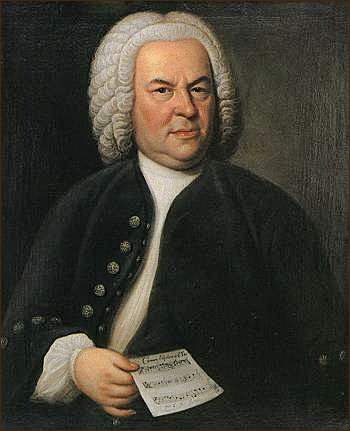
The 17th and 18th centuries in Europe were home to some of the most profound individual achievements in the history of western civilization. The 17th century proffered the return of the scientist and objectivity with great discoveries and theorems delineated by some of the greatest minds in history, including Descartes, Newton, Galileo, and Hooke changing man’s perception and acknowledgement of the natural world. The 18th century was the age of enlightenment, dominated by political revolution and elevation of the musician composer to giants of the age, with Handel, Haydn, and Mozart reconnecting man to his internal psyche and soul, and his personal relationship to his God. The individual that bridged the two eras and lived in both the world of objectivity and spiritualism was perhaps among the greatest of them, Johann Sebastian Bach (1685 -1750). Bach lived a life of total devotion to his artistic science and to his God and ended up creating a nearly perfect form of veneration that knows no equal. He saw himself as a vessel of the creative force of the Holy Spirit and devoted his musical life expression to the sacred. Many composers have produced greatness, but Bach stands alone in the marriage of musical design, intimate melody, diversity, and sacred profundity. Now over 260 years from his death, Bach stands as a colossus of western civilization.
Bach spent his entire life in relative obscurity for his creations but was recognized as an organ virtuoso from the start. The Bach family mutated a significant musical gene with Bach born of a musical family and he himself producing three composer sons of significant repute. Bach was born and reared in Eisenach, Germany, and spent much of his adult life close to home. His initial significant impact was as a court musician in Weimar, eventually taking positions as chief Kapellmeister in Kothen, and then Leipzig. At each step Bach churned out both secular and sacred music for local consumption, bringing virtuoso individual skills to prominence while elevating liturgy to profoundly emotional spiritual levels. Brief contacts with fame were fleeting; the most famous story regarding Frederick the Great’s desire to see if the legendary German could hold a candle to his French language and culture dominated court. He brought him to the royal court in Potsdam and challenge him to create a from scratch fugue from a musical theme he had composed. Bach immediately dazzled the court with an extended three part fugue that left them speechless, then retired to his room to compose a six part fugue he presented the next day. At a time when music wavered between song and uncomplicated construction, Bach brought a mathematical science to his singular melodies that will never know an equal. The style known as contrapuntal, elevated music to an intellectual complexity not previously known, with an emotional depth previously seen only in the great artworks of the Renaissance. Yet Bach in his lifetime was a relatively obscure jewel and died with his greatest works essentially unknown to the wider audience beyond his Sunday services.
With the elevation of the great composers of the 19th century to celebrity status, Bach’s works were rediscovered and their timeless greatness were noted to have held up very well. The perfect structure, the intensely emotional expression, and the absolutely unique creations have become a critical part of humanity’s sense of existential purpose and the most profound examples of the human capacity for greatness. Bach was too humble regarding his place in God’s creation to see himself as anything other than a vessel for God’s relationship with His creation. Humility like that, that creates genius output like Bach, should be a humility that we all could only hope to emulate.